
“For [Jesus] himself is our peace, who has made the two groups one and has destroyed the barrier, the dividing wall of hostility, by setting aside in his flesh the law with its commands and regulations. His purpose was to create in himself one new humanity out of the two, thus making peace, and in one body to reconcile both of them to God through the cross, by which he put to death their hostility.” (Eph 2:14-16).
This is one of the many Scriptural texts that make it clear that Christians are to be “united” and “one.” Yet, what does this unity and oneness look like, and how do we get there? Read below to hear about UniteBoston’s five ministry priorities this year on our “journey towards one:” Cohorts, Commitment, Challenge, Convene, and Clarify, and how you can take part in this journey with us.
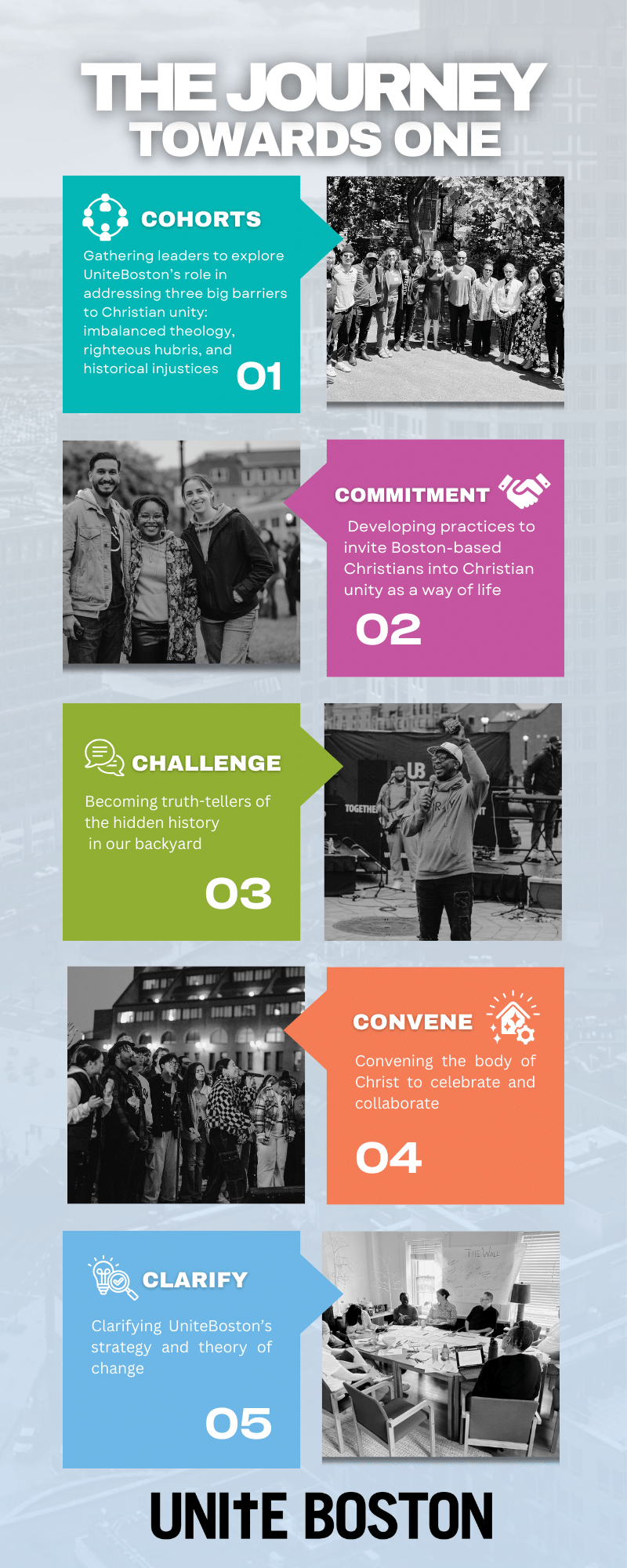
By: Rev. Kelly Fassett, Rev. Devlin Scott, and Rayza Carrasco
This past fall, UniteBoston’s staff and board sat down seeking to CLARIFY our ministry vision, strategy, and theory of change. Over the course of thirteen years, UniteBoston had gone from a small e-newsletter sent to a couple of dozen people to a full-fledged non-profit ministry with multiple staff. We had pursued the unity and oneness of Christians through hosting large united worship nights, coordinating a weekly events newsletter and website hub, convening missional collaboration conferences, launching neighborhood dinners, hosting learning groups, and more.
We knew that at the center of the Christian faith is the confession that Jesus’ incarnation, death, and resurrection has reconciled us to God and to one another, thus forming an inseverable and eternal peace (Eph. 2:14). This central message of reconciliation is a prominent theme throughout the New Testament, and the early Christians were convinced of the centrality of unity among followers of Christ. (2 Cor 5:16-21, 1 Cor 1:10, Rom 12:4-5, Jn 11:52, Eph 4:3).
Yet, this “unity” and “oneness” is easier to live in theological constructs than in practice. Christian unity isn’t just a surface-level kumbaya togetherness, “hues in the pews,” as that often erases voices that are traditionally on the margins. True Biblical unity must not only encompass diversity but also erase hierarchy, inequity, injustice, and false structures of power. Biblical unity is a “deep unity,” one that leans into the places of division to discover the roots and possibilities of reconciliation and repair. In the course of our ministry, we had seen that the barriers hindering Christian unity, equity, justice, and flourishing for all needed to be tackled head on. To this end, our staff and board brainstormed together and came up with three big barriers to Christian unity: imbalanced theology, righteous hubris, and historical injustices.
Christian unity is not just a belief or an event but is actually a question of discipleship: the way we understand and practice our love of God and neighbor on a daily basis. As our team sought to unpack these three barriers to Christian unity and CLARIFY the learning experiences and cohort models that could be designed to disciple people as ambassadors of reconciliation and repair (2 Cor 5:18-20), we immediately realized that we could not do this work on our own; this big-picture work will be much sharper and stronger when it is done with a collective community of leaders offering their insights and perspectives. This past year, we launched a Christian unity COHORT with twelve diverse leaders who met monthly to share their own personal stories of unity and disunity in the church and explored how people are living out God’s call towards unity, justice and reconciliation.
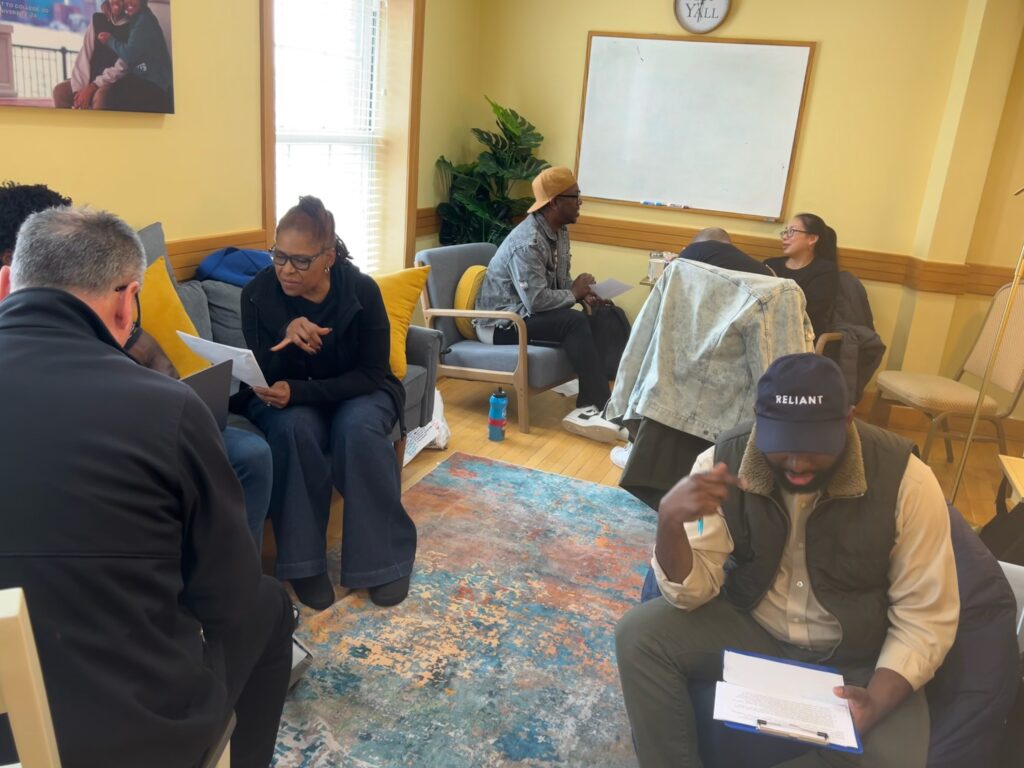
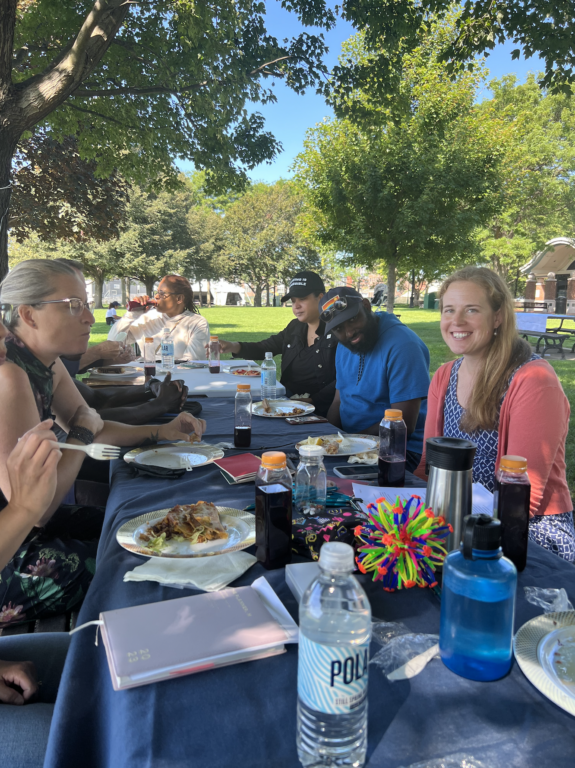
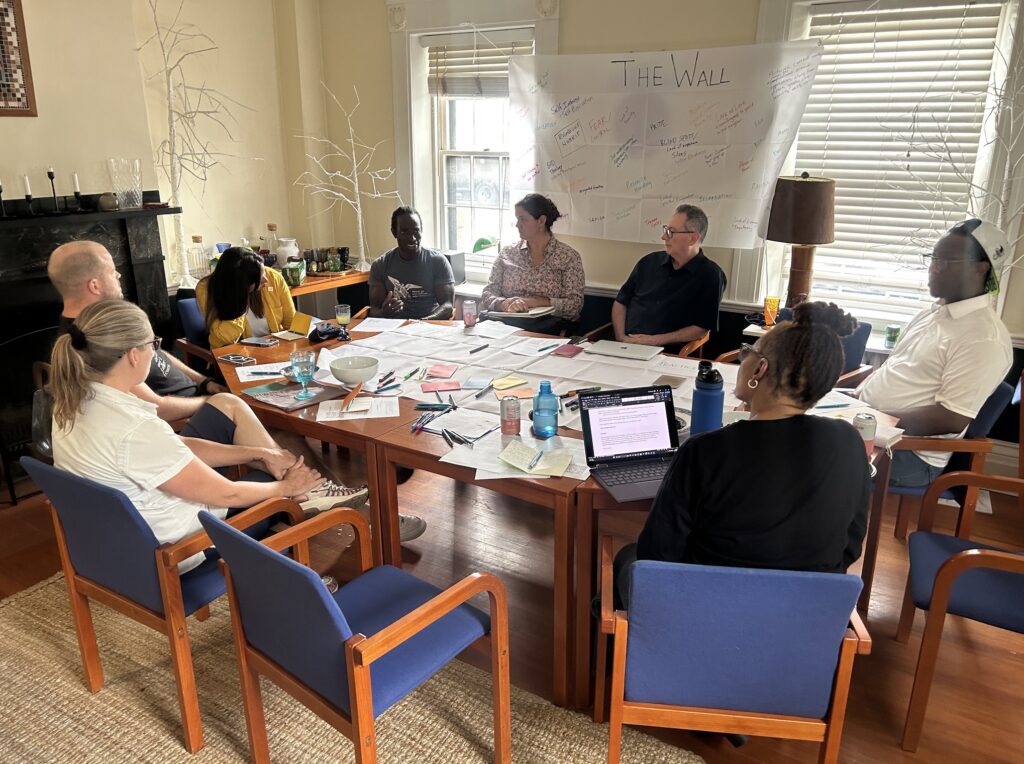
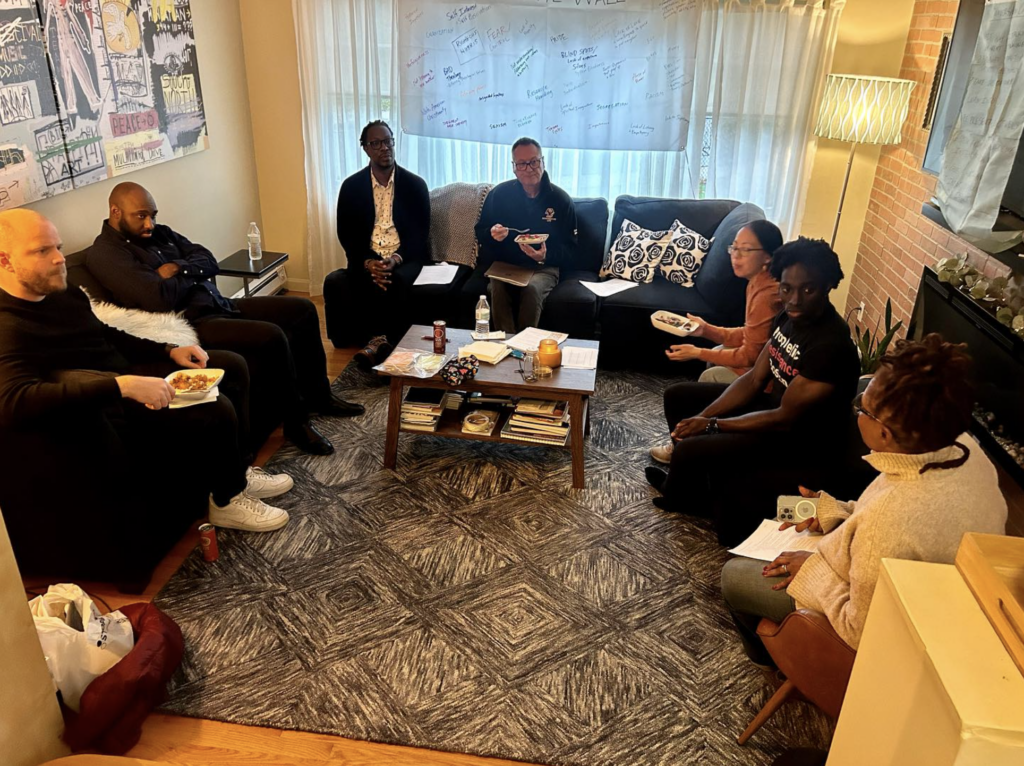
Here are a few key ideas about Christian unity that Kelly and Devlin are taking away from the cohort journey:
Genuine, vulnerable story-sharing allows us to truly see one another, deepening our understanding of our unity in reconciled diversity. This transformative process reshapes our sense of connection and mutual worth, inspiring us to live out our shared brotherhood and sisterhood in Christ. When we really see one another, it changes how we feel connected to one another and how we feel they deserve what I deserve.
The journey towards Christian unity involves remembering and rediscovering who we are in Christ, cultivating authentic diverse friendships, carefully tending to wounds and places of rupture, and showing up for one another in sacrificial solidarity. This group has protected, celebrated, defended, and made room for one another, which has been challenging and immensely healing.
Here are a few reflections from members of the cohort:
“The individuals in our cohort are all so different; culturally, liturgically, and theologically. But as I’ve listened to the stories of God’s movement in the lives of each of these new friends, I’ve been awed by just how much we have in common: a love for Jesus, a devotion to his church, wounds in need of healing, a deep longing for the Kingdom, along with a lot of courage and faith. This journey and these people have reinforced my commitment to move from curiosity, my belief that we have so much to learn from each other, and my hope that the chasms that divide us can be bridged.”
-Josh Wilson, Pastor at Reality Boston
“If the seed of Christian unity is our faith in Jesus, and the sunlight/water are our opportunities for joint ministry and mission, then the soil is most certainly our relationship and engagement with each other. The soil is aerated by our whole-hearted leaning into difference and disagreement with love.”
– Edwin Johnson, Director of Organizing at Episcopal City Mission
“In the Christian unity cohort, I found that our differences didn’t divide us; rather they made us connect more intentionally as we built friendships with one another. We don’t have to agree on all the things, but we can accept, love, and serve one another just like Jesus loved and served us.”
-Carolina de Jesus, Chief Executive Officer at the Boston Higher Education Resource Center
“As a Roman Catholic, I am reminded that the Catholic Church made a fundamental shift in its vision of Christian Unity from Vatican I to Vatican II, moving from an ecumenism of “return” to an ecumenism of “recognition” – the recognition of an esteem for the many gifts of God’s Spirit that reflect a genuine communion of faith and life with other Christian churches. As a result of the journey that we have shared in our Christian Unity cohort, I am convinced that the personal and relational always come before the structural and institutional. Journeying out of our isolations; meeting, sharing meals, sharing our stories, getting to know and trust one another; establishing friendships— these cohort experiences of relationship form the climate in which both individual Christians and separated communities become open to, recognize and receive gifts of the Holy Spirit from one another. It is this kind of climate that I have witnessed with our Unity Cohort from which a passion for unity is cultivated and sustained. Symbolic gestures are important among church leaders, but relationships of trust and mutual affection have to grow among members of different churches as well if receptive ecumenism is to flourish.”
-Michael James, Resident Minister and Faculty Member at Boston College
We’re now launching two new year-long working group COHORTS to help us shape the next season of UniteBoston. First, a “Sankofa journey” working group to reconstruct a common memory on the racial history of Boston and CHALLENGE people to be truth-tellers about the hidden history in our backyard. Second, a working group to explore the theology, practice, and heart posture of “Christian unity.” The working groups will help us unpack the three barriers to Christian unity we have identified and discern what content, experiences, and practical COMMITMENTS people can make towards becoming ambassadors of reconciliation and repair. We believe that UniteBoston’s role is to create opportunities for “beloved community” to emerge, one that leans into our diversities, nurtures belonging for all of God’s children, models redemptive power dynamics, and works together to nurture shalom across historic divides. As we nurture kinship relations among diverse siblings in Christ, we believe our self-giving love for each other will be a collective witness to the reconciling power of the gospel.
Much of our team’s time and attention will be behind the scenes so we can do this work well. But don’t worry, we will continue our newsletter and website, and we are still planning to CONVENE Christians in Boston for a fall concert featuring a united gospel choir, as well as Boston Flourish on November 7.
We’re grateful to have so many leaders and friends with us on the journey – You make this work possible, and you make it a lot of fun too!
Join us on the Journey Towards One:
- Pray for wisdom and discernment for our team and collaborating partners as we seek to understand how Christians in Boston might embody the oneness that Jesus prays for and refine UniteBoston’s missional priorities and theory of change.
- Stay engaged by reading the UniteBoston newsletter and following us on our social media Facebook Instagram
- We’d love to hear from you if you have any ideas, resources, or stories you’d like to share with us that might help us on this journey!
– Rev. Kelly, Rev. Devlin, and Rayza
Lord, make us instruments of your peace.
Where there is hatred, let us sow love;
where there is injury, pardon;
where there is discord, union;
where there is doubt, faith;
where there is despair, hope;
where there is darkness, light;
where there is sadness, joy.
Grant that we may not so much seek to be consoled as to console;
to be understood as to understand;
to be loved as to love.
For it is in giving that we receive; it is in pardoning that we are pardoned; and it is in dying that we are born to eternal life. Amen.
– A Prayer attributed to St. Francis
Has the destination of Christian unity become a blur on the horizon? The modern Christian movement called “Ecumenism” seeks to recapture the fundamental biblical truth that the Church as the people of God and the body of Christ must exemplify in this world how God gathers people together from the ends of the earth to live together as a new humanity. Christian unity is not an isolated end in itself, but must always be understood as unity in and for the world.